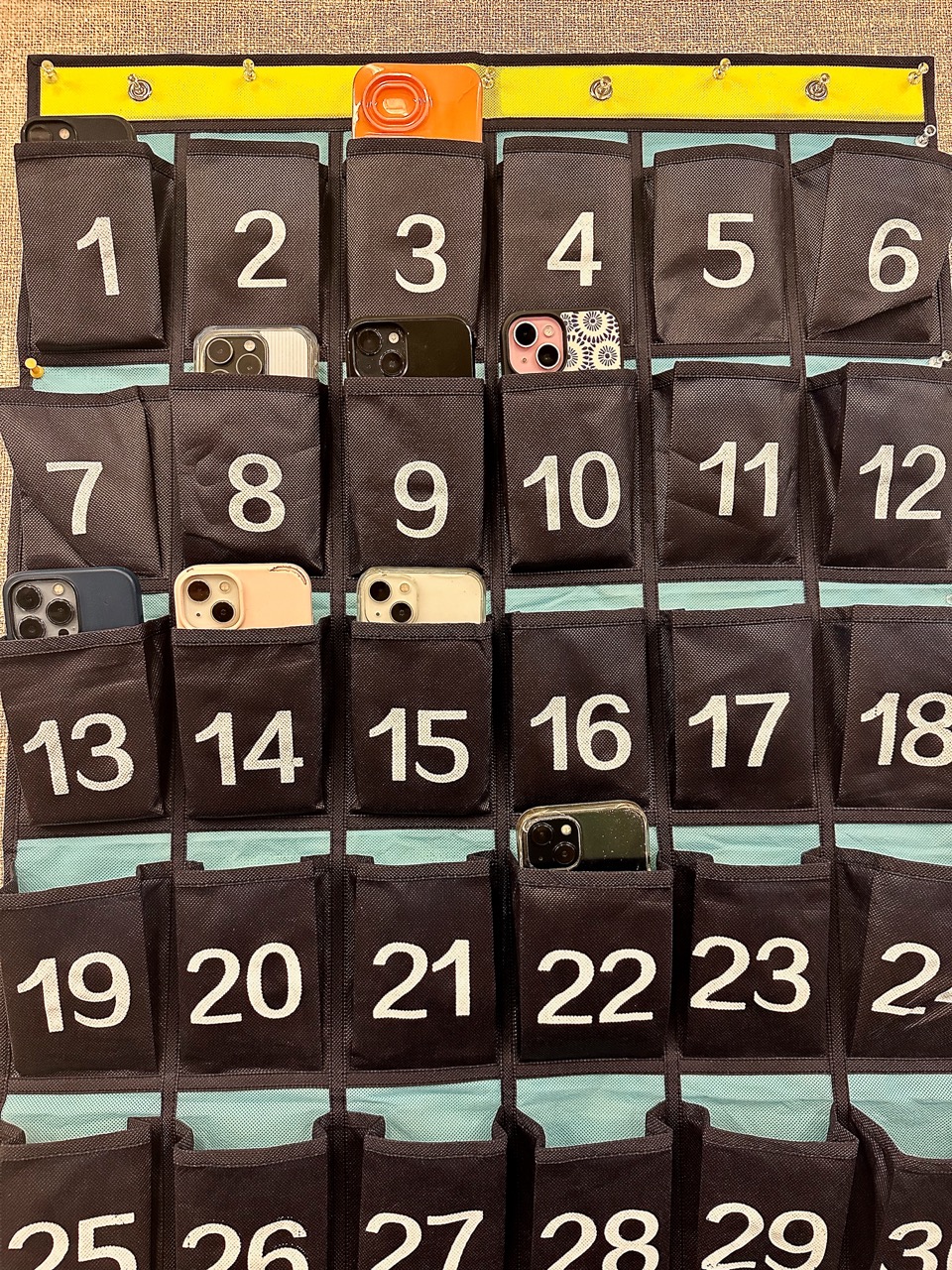Recently, Branson has made efforts to address the growing issue of phone usage on campus.
Whether students being on their devices during class or students using phones instead of conversing with their peers outside of class, it has been recognized that change needs to be made.
However, rather than establishing a universal phone policy, the school has left it to individual teachers to implement their own rules thus far. This results in varying classroom expectations from one teacher to the next.
Head of School Chris Mazzola has created a cell phone task force, with science teacher Karl Schmidt leading it, to outline a clear phone policy. This group of 10 people — students and adults combined — will meet once a week over the next eight weeks.
“[The group] aims to create a policy that incorporates the whole school, instead of just implementing something without the community’s opinions as that more closely resembles Branson’s values,” said Simone Schachter ‘26, a member of the task force.
The task force already had their first meeting and plans to send out surveys to staff, faculty and students, seeking their opinions on phone usage across campus.
In lieu of an official schoolwide policy, some faculty, including Spanish teacher Arturo Acevedo, have adopted their own methods to manage phone distractions in the classroom. In Acevedo’s classes, for example, students are required to place their phones in a designated holder on the wall before class begins.
When asked about his opinion on the phone policy, Acevedo referred to the restrictions revolving around phone usage as a placeholder.
“We don’t really have a phone policy yet,” Acevedo said.
With the increase in teachers creating phone policies for their respective classrooms “it is much easier to get everyone [the students] on board with it,” Acevedo explained.
This approach, while strict, has been met with mixed reactions from the students. Some students appreciate the focus it brings. For example, Talbot Bales ‘25 said, “I have grown to like the restrictions placed on devices as it adds a level of separation between me and unnecessary technology in the classroom setting. However, I feel like it is sufficient to keep my phone away in my backpack instead of placing it in the phone jail.”
Other students find the restrictions unnecessary as Branson works to prepare us for college, where phones are not confiscated.
Taylor Howard ‘26 said, “Students should be responsible for their phone usage in and out of class. At the end of the day, it is just going to affect their learning.”
In the coming weeks, it remains in the air what route Branson chooses to take regarding the phone policy: a stricter regime across the board like the one seen in Acevedo’s class, or a more open policy that allows students to make choices that they think are responsible.





